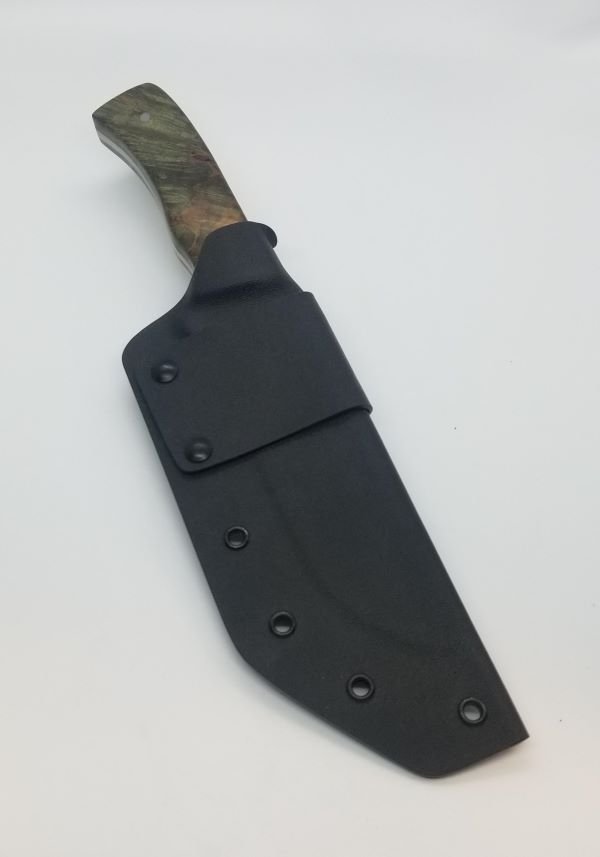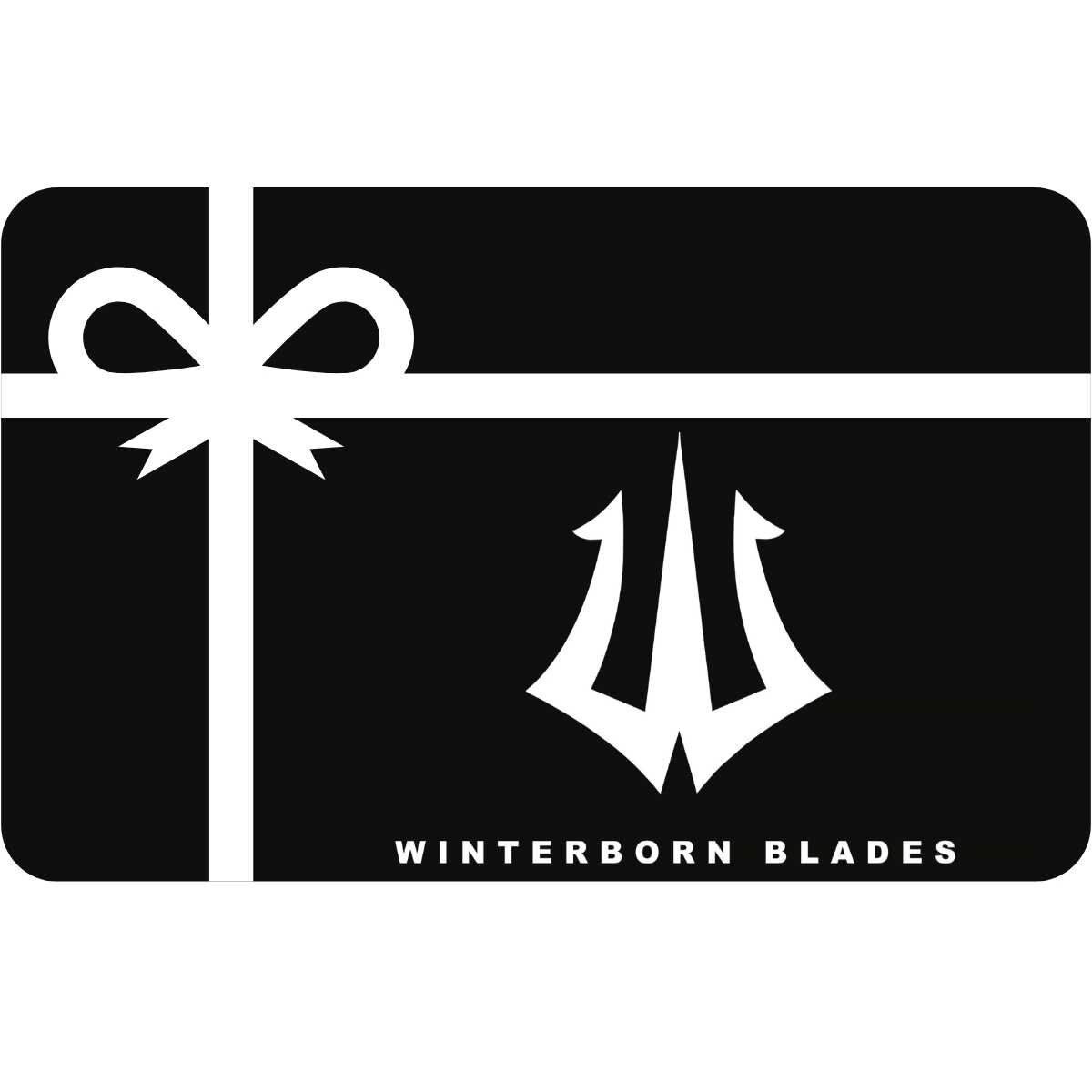IMPORTANT SHIPPING INFORMATION
Be sure to check the laws of your region before placing an order as they may have certain restrictions. If your package is seized by customs due to their laws/regulations, Winterborn Blades will not be held liable and will not replace your item.
Types of Custom Knives
What are the differences?
The smaller the knife, the finer work you can do (for example, de-boning).
You might want a big chopper that can do the tasks of a hatchet as well as a knife.
The smaller the blade, the thinner the spine of the steel: it ranges from 0.187, 0.204, to 0.250. Usually I use 80CRV2 steel for the 0.187" thick knives, and 5160 spring steel for the rest. 5160 steel is my preference as it is a good, durable steel.
Bushcraft Knives
Hunting Knives
Survival Knives
Camping Knives
Types of Custom Sheaths
Sheath Material
Leather
Kydex - What is Kydex? It’s a kind of plastic used for gun holsters and knife sheaths. It gets molded to the shape of the product for a tight fit.
Custom Knife Gallery
Custom Knife Specs
MATERIALS USED
Blade Steel Material
80CRV2 high carbon steel
5160 high carbon spring steel
NOTE: I ONLY make custom knives using high carbon steel and wont make anything in stainless steel.
Handle Material
Material by request. Here are some examples of what I’ve used in the past for custom knife commission projects:
Exotic Wood
G10
Antler
Bone
Resin
Leather
Hand Guard Material
Steel
Bronze
Brass
HEAT TREATING PROCESS
Durability
Durability is in the heat treating process, which has 3 steps:
Normalizing Cycle
Normalizing cycles are completed 3 times. This reduces the grain size in the steel by taking any stress out caused by the forging process.
They are heated to 1550 degrees Fahrenheit and air cooled.
Hardening
Heat to 1550 degrees and quenched into 120 degree oil to harden the steel.
Tempering
I temper each blade 3 times. The blade is tempered at a lower temperature to take away the brittleness caused by the hardening process and will be able to take impact without breaking or breaking.
The temperatures very depending on what the knife will be used for.
SHARPENING
You can sharpen knives on a wet stone, a sharpening rod, or various other ways. There are endless ways to sharpen them.
BLADE CARE
Winterborn Blades knives are made from high carbon steel.
If not properly cared for, they will rust. Always have a thin layer of oil covering the steel. This will keep it from rusting.
Do NOT wash a custom knife in the dishwasher! Hand wash and towel dry immediately, then oil the blade with mineral oil.
The steel will naturally get a patina over time from all the different juices it will come in contact with.
Finger prints are acidic and will cause the steel to rust, so wipe down the blade and re-oil after use.
If your blade gets wet make sure to wipe it dry and re-oil it. DO NOT air dry.
If you plan on storing the blade for long periods of time make sure to re-oil it every two months.
Recommended Oils:
3 in 1 multipurpose oil (provided with purchase)
Non-penetrating gun oil
Mineral oil
A Custom Knife is a Great Gift for:
Father’s Day
Retirement Present
Wedding Anniversaries
From Father to Son
From Son to Father
For the "Outdoorsman”
Mementos
Bushcrafters
Hunters
Campers
Survivalists
From Wife to Husband
From Husband to Wife
Contact Me for
Custom Knife Projects

















































